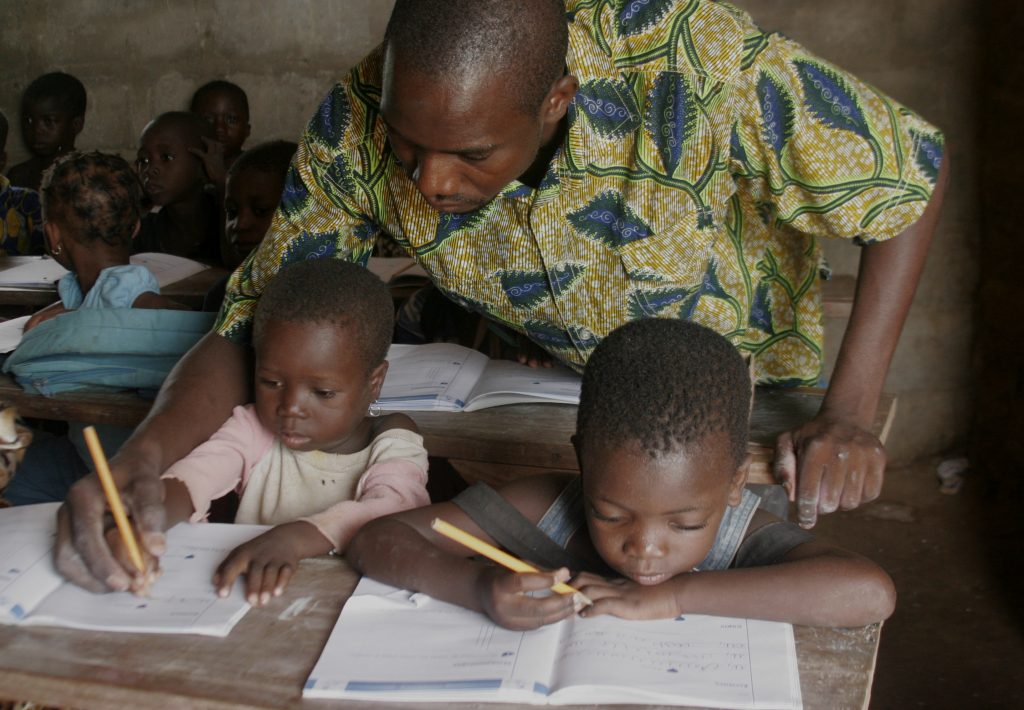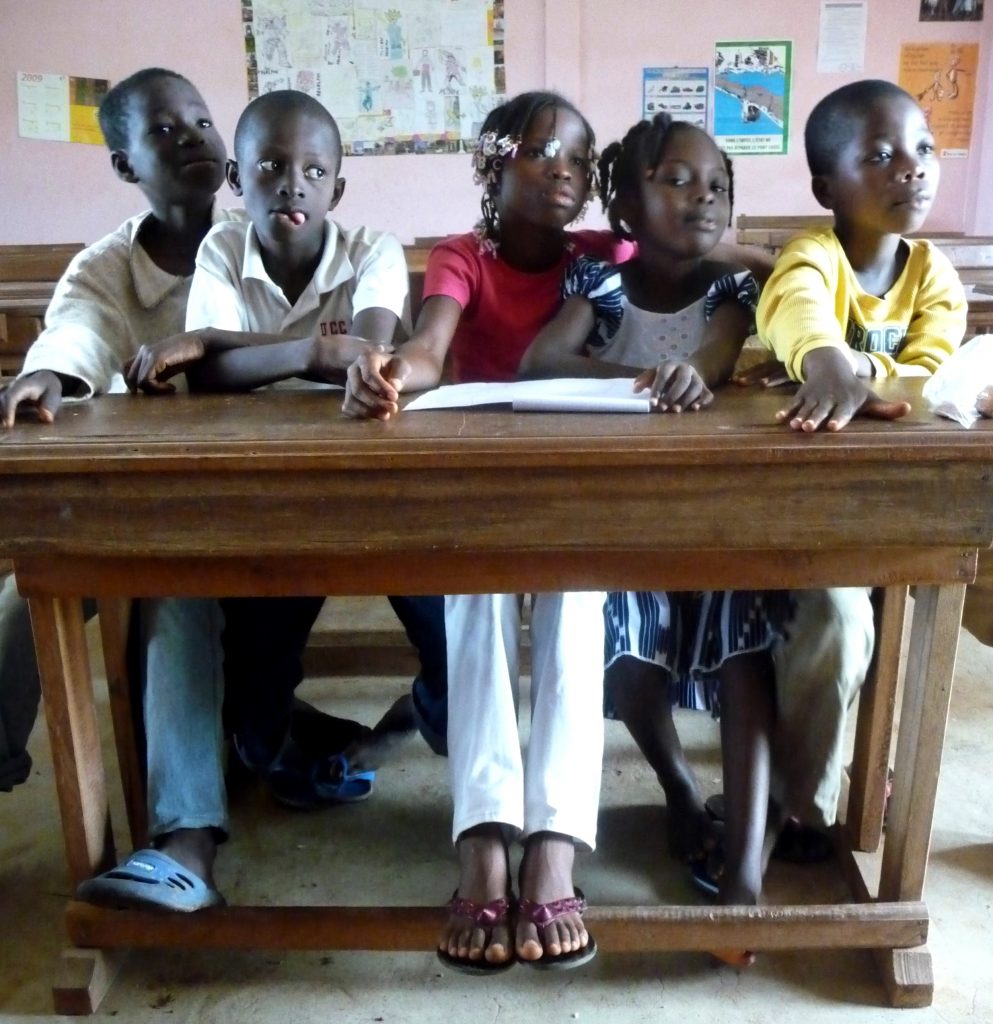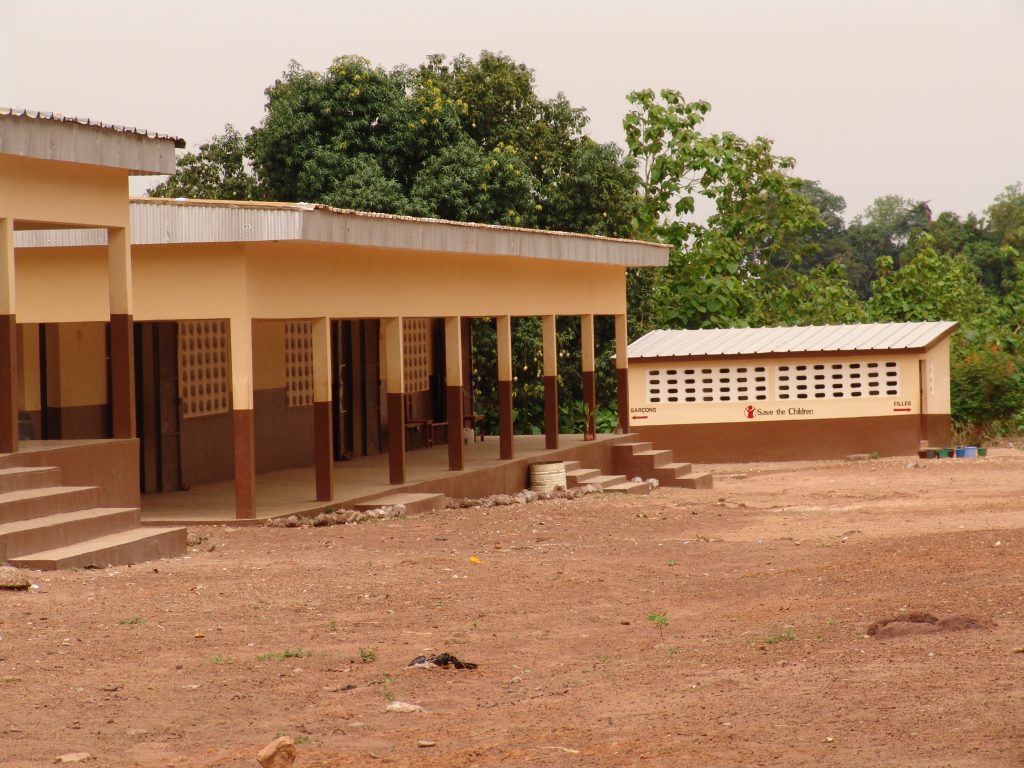Access to quality education for girls in Northern Côte d’Ivoire
Partner: Save the Children
Background
 Côte d’Ivoire was torn apart in 2002 when conflict broke out between the government and rebel forces in the North. Although the country attained relative stability after a peace agreement was signed in March 2007, children are still suffering from the negative consequences of war. Bondoukou is one of the poorest areas and has one of the lowest gross school enrolment rates in the country.
Côte d’Ivoire was torn apart in 2002 when conflict broke out between the government and rebel forces in the North. Although the country attained relative stability after a peace agreement was signed in March 2007, children are still suffering from the negative consequences of war. Bondoukou is one of the poorest areas and has one of the lowest gross school enrolment rates in the country.
Girls’ access to education is limited due to economic constraints, lack of birth certificates, prioritization of boys’ education over girls, limited capacity of schools, household work, sexual violence, forced marriages, and early pregnancy.
Access to education has been a major obstacle in Côte d’Ivoire in recent years, especially equality of access between boys and girls. Despite government and NGO initiatives to boost girls’ education, recent statistics from the Ministry of Education show that there is still a long way to go, especially in the northern parts of Côte d’Ivoire, where only 27% of all girls are able to enrol in primary schools. Girls’ access to education can be increased by changing community attitudes; increasing the availability of spaces in schools; ensuring girls have birth certificates to register; and providing school books, supplies and materials to reduce costs.
Project objectives
 Save the Children (SC) will use the $100,000 grant from 60 million girls towards its project, which will take place in Bondoukou, Côte d’Ivoire.
Save the Children (SC) will use the $100,000 grant from 60 million girls towards its project, which will take place in Bondoukou, Côte d’Ivoire.
The project seeks to increase access to a quality education for 400 girls at one Non-Formal Education (NFE) Centre and one primary school by:
- renovating and refurbishing one Centre
- training teachers in “girl-friendly” methodologies
- protecting girls from violence affecting their schooling
- encouraging girls of all religions and ethnicities to attend school
- registering girls’ births to facilitate enrolment
- encouraging girls’ participation in decision-making at school and the community
Girls will receive education kits and sports kits and be encouraged to participate in school management committees and children’s rights clubs.
Local communities will provide input at the needs assessment stage and in renovating/re-furbishing the NFE Centres (financially or with materials/ labour). Local education authorities will be supported to run education promotion campaigns and reduce the costs of birth registration and issuing of birth certificates.
Specifically, it is expected that 400 girls will benefit from free quality education and school and recreation kits, while 25 girls will obtain birth certificates. Nine teachers will benefit from improved teaching materials and training; 48 children will receive child rights and child protection training; and 12 school management committee members will develop their managerial skills.
Activities
- Renovation of one NFE Centre (roofs, walls, doors)
- Installation of one water point and latrine in one NFE Centre and one school
- Provision of furniture, education and sports kits for 400 girls; two recreation kits; and teaching kits
- Training and awareness-raising
- School and community sensitization campaigns
- Birth certificate campaigns
- Support for birth registration and certificates
- Child rights training
Why a partnership with Save the Children
Save the Children has been working in Côte d’Ivoire since 1996, when the organization provided assistance to refugee children fleeing from neighbouring Liberia. When conflict broke out in 2002, SC responded to children’s immediate needs, focusing on protecting children from violence, abuse, and exploitation. Since then our programs have developed into longer term responses; our child protection work has expanded, as well as our education program under SC’s global Rewrite the Future (RTF) initiative for children affected by conflict.
Since the start of the RTF initiative in 2006, SC has refurbished and equipped over 220 primary schools that were destroyed during the conflict or deteriorated since due to lack of maintenance, improving access to education for over 72,600 children for the first time. In areas where there are no schools, SC has provided ongoing support to NFE Centres started up by local communities, benefiting close to 15,000 of the hardest to reach children.An estimated 150,000 children have been provided with school kits, to improve their quality of education and increase their chances of staying in school, without the financial burden of paying for materials. As a result of SC’s past efforts in Bondoukou, the number of pupils accessing NFE Centres increased by 35% between 2007 and 2009 (from 1008 to 1, 369 pupils, including an increase from 401 to 573 girls).
Save the Children’s teacher training has contributed to improving the quality of education, as well as teachers’ understanding of child rights, participation and protection. The elaboration of a teachers’ Code of Conduct, supported by teachers’ unions, and the adoption of a ministerial decree banning physical and humiliating punishment and sexual violence in schools – both advocacy successes of SC – have considerably reduced violence against children in schools. Overall the combined efforts of SC, the national government, and other actors have increased the gross enrollment rate in Côte d’Ivoire from 54.56% in 2002/2003 to 74.6% in 2007.
In 2009 Save the Children received an Order of Merit from the Ministry of Education, recognizing our accomplishments in the education sector. It was the only time such an award has been given to an international NGO operating in the country.
